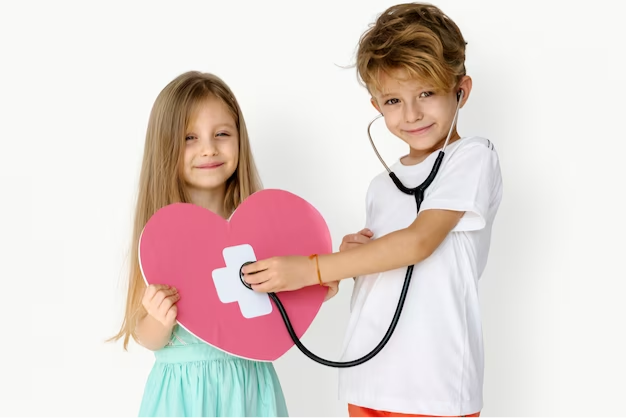
Caritas Heart Institute
Cardiovascular Exercise: A Key to a Healthy Heart
December 2023

When we think of heart disease, we often associate it with adults. However, heart disease can also affect children, with various congenital and acquired conditions posing a threat to their heart health. In this article, we will explore the different types of heart disease in children, including both congenital heart defects and acquired conditions, to raise awareness about this important topic.
Congenital Heart Defects
Congenital heart defects are structural abnormalities present at birth. They can affect the heart's structure, valves, walls, or blood vessels, and they can range from minor issues that cause no symptoms to severe, life-threatening conditions. Some common congenital heart defects include:
Acquired Heart Conditions in Children
In addition to congenital heart defects, children can also develop acquired heart conditions, often due to infections, diseases, or other factors. These conditions may include:
Diagnosis and Treatment
Diagnosing heart disease in children often involves a combination of physical examinations, medical history, and specialized tests like echocardiograms, electrocardiograms, and chest X-rays. The treatment varies based on the specific condition, its severity, and the child's age. Options may include:
- Medications: To manage symptoms, improve heart function, or prevent complications.
- Surgery: Some conditions require surgical intervention to repair heart defects or replace damaged heart valves.
- Catheter Procedures:Less invasive procedures, often used to close holes in the heart or open narrowed blood vessels.
- Heart Transplant: In severe cases where the heart is severely damaged or there are no other treatment options, a heart transplant may be considered.
Living with Heart Disease in Children
Many children with heart disease go on to live active, fulfilling lives. Advances in medical care and surgical techniques have improved outcomes for children with heart conditions. Regular follow-up with pediatric cardiologists and adherence to treatment plans are essential for managing the condition effectively.
Heart disease can affect children, and it can be congenital or acquired. Early diagnosis, prompt treatment, and ongoing care are essential for ensuring that children with heart conditions have the best chance for a healthy and vibrant life. Raising awareness about heart disease in children is crucial, as it can lead to improved outcomes and support for affected families.

Caritas Heart Institute
December 2023